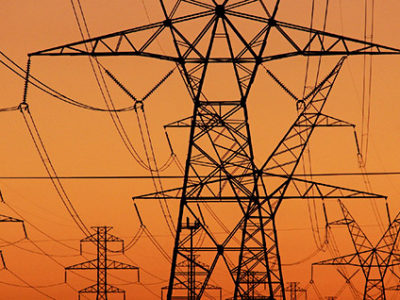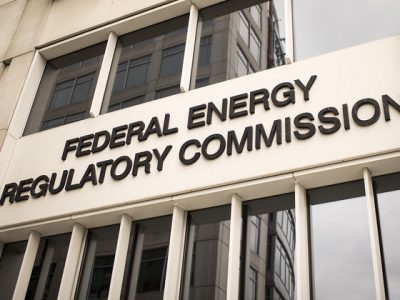energy law
The Emperor’s New Endangerment Theory (Wrap-Up)
Trump’s EPA says carbon emissions from U.S. power plants are too insignificant to regulate.
U.S. power plants emit 1.5 billion tons of carbon dioxide a year, a little less than the entire country of Russia. The Trump Administration is proposing to end all regulation of carbon emissions by power plants, on the theory that these emissions should be considered insignificant. They have some complicated legal arguments , but the arguments break down the more closely you look at them.
CONTINUE READINGCan Trump Save U.S. Coal? Not likely.
“Beautiful clean coal”, as Trump calls it, is inexorably declining.
The title of one of Trump’s executive orders is “Reinvigorating America’s Beautiful Clean Coal Industry.” That order says, “it is the policy of the United States that coal is essential to our national and economic security.” But Trump’s efforts seem unlikely to make a dent in the long-term, global malaise of the coal industry, or its sharp decline in the U.S.
CONTINUE READINGNo, DOE, You Can’t Roll Back Product Efficiency Standards
Congress wanted greater energy efficiency over time and banned rollbacks.
The Department of Energy is proposing to rescind key energy efficiency requirements. It is beyond ironic that it is attempting to do so at a time when the President has proclaimed an energy emergency. Trump says the grid is struggling desperately to meet surging power demand. That’s a strange time to eliminate regulations that are saving energy. DOE’s action is also illegal, because the law in question has a provision prohibiting rollbacks. Congress wanted efficiency standards to get tougher over time and included an anti-rollback provision to make sure of that.
CONTINUE READINGJust How Endangered is Clean Energy?
The Trump administration wants to slow the U.S. clean energy transition. Will it put energy investments in a deep freeze or a temporary chill?
Business investment decisions rely on stability. And stability is in short supply so far in this Trump administration. Instead, we’ve seen an erratic blitzkrieg of activity on tariffs, federal funding, and deregulation that has spooked all sorts of industries. That’s partly why Heatmap News has declared Trump “Degrowth Donald,” and why my Legal Planet colleague …
Continue reading “Just How Endangered is Clean Energy?”
CONTINUE READINGTest Your Knowledge of Climate Law
How much do you really know about the law relating to climate change?
How much do you really know about climate law? Expert or novice, this quiz will test your knowledge and maybe help you fill in some gaps.
CONTINUE READINGA New Energy Project at UCLA Law
The Emmett Clean Energy Law & Leadership project will build a bridge between the existing expertise of UCLA’s energy law scholars and policymakers.
You don’t have to look beyond the front pages of newspapers, or beyond rooftops in your neighborhood to know that we are in the midst of a clean energy revolution, with renewable energy technologies dramatically decreasing in price and increasing in availability. These technologies promise to reduce energy cost burdens for households, as well as …
Continue reading “A New Energy Project at UCLA Law”
CONTINUE READINGImportant Progress Toward a Climate-Ready Grid
New transmission is crucial. This is how FERC is starting to address the problem.
We urgently need more transmission to accommodate renewable energy, increased energy demand, and grid resilience to climate disasters. Yet the transmission approval process has been badly broken, often favoring small projects that plump up utility profits but do little to address longterm or regional transmission needs. Last week, the government took steps to improve permitting …
Continue reading “Important Progress Toward a Climate-Ready Grid”
CONTINUE READINGClimate Policy and the Audacity of Hope
The barriers are still huge — but we can also envision a path to success.
We should resist the allure of easy optimism about climate change, given the scale of the challenges. Neither should we wallow in despair. There’s a good basis for hope. Let’s seize the day!
CONTINUE READINGReviewing Agency Indecision
The Third Circuit straightens out a quirk in FERC law, to the benefit of renewable energy.
A case decided by the Third Circuit on Dec. 1 is important for two reasons. It clarifies a puzzling procedural rule applying to the Federal Energy Regulatory Commission (FERC). And it upholds an important policy shift regarding renewable energy by the country’s largest grid operator. Since you’re probably more interested in the second point than …
Continue reading “Reviewing Agency Indecision”
CONTINUE READINGReviewing Agency Indecision
The Third Circuit straightens out a quirk in FERC law, to the benefit of renewable energy.
A case decided by the Third Circuit last week is important for two reasons. It clarifies an important procedural issue applying to the Federal Energy Regulatory Commission (FERC). And it upholds an important policy shift regarding renewable energy by the country’s largest grid operator. Since you’re probably more interested in the second point than the …
Continue reading “Reviewing Agency Indecision”
CONTINUE READING












